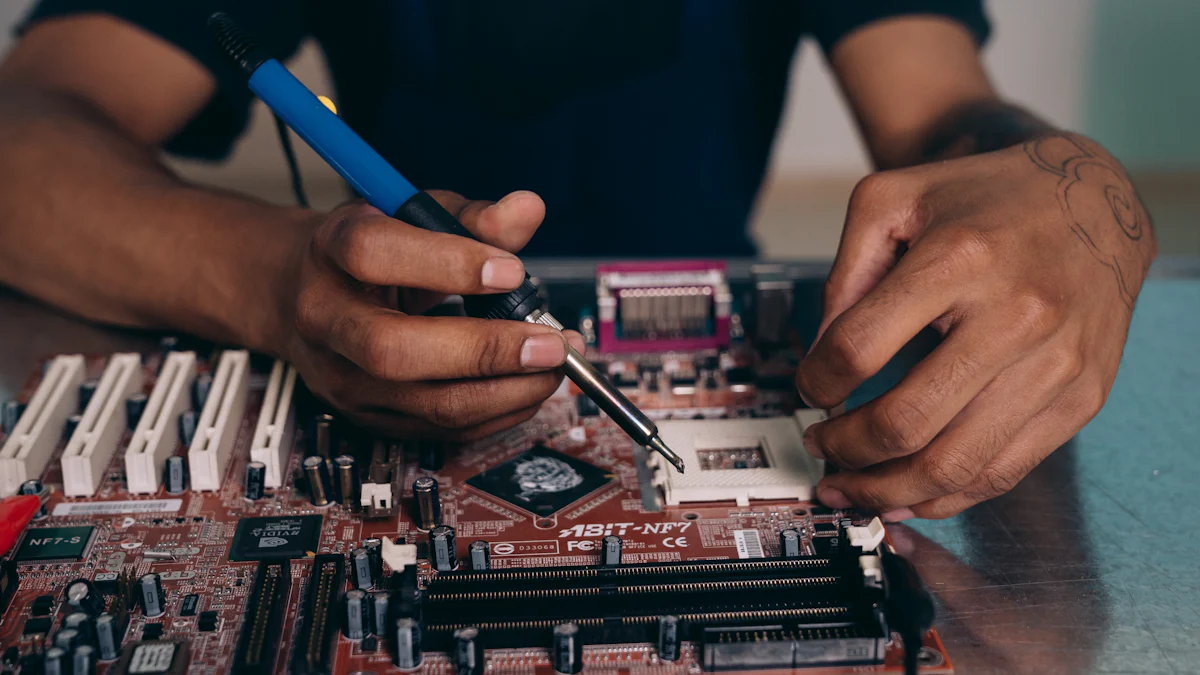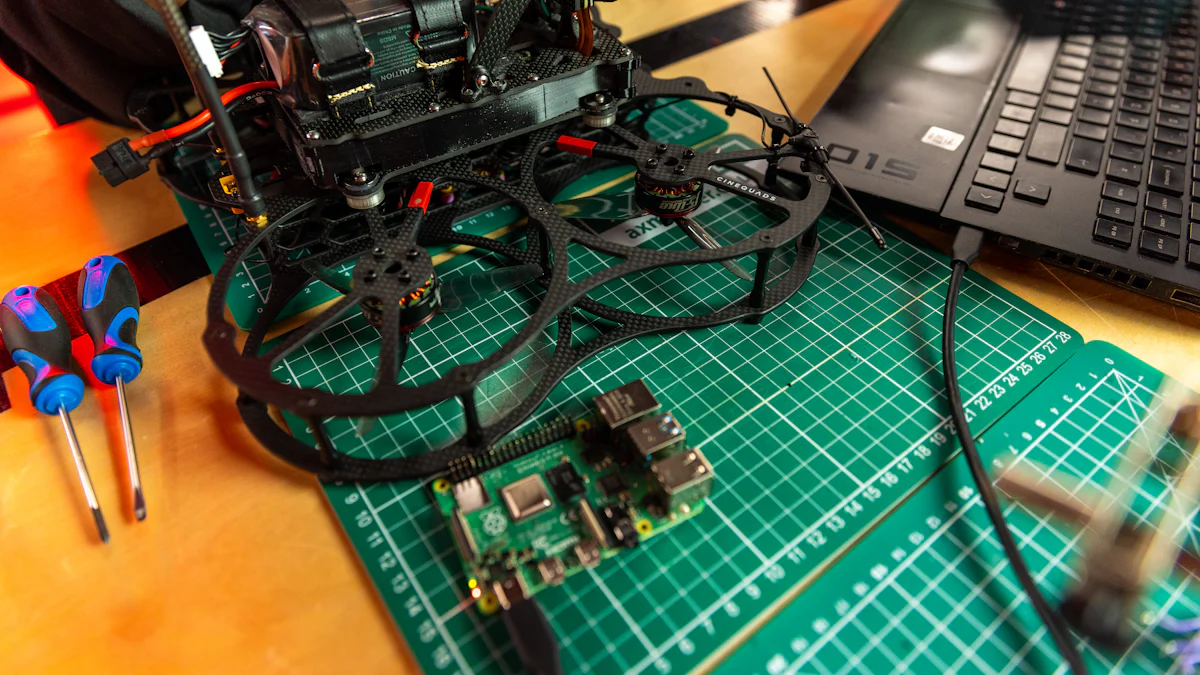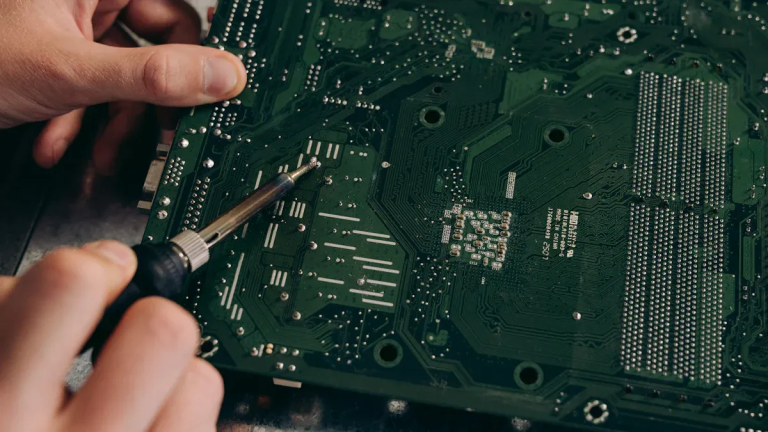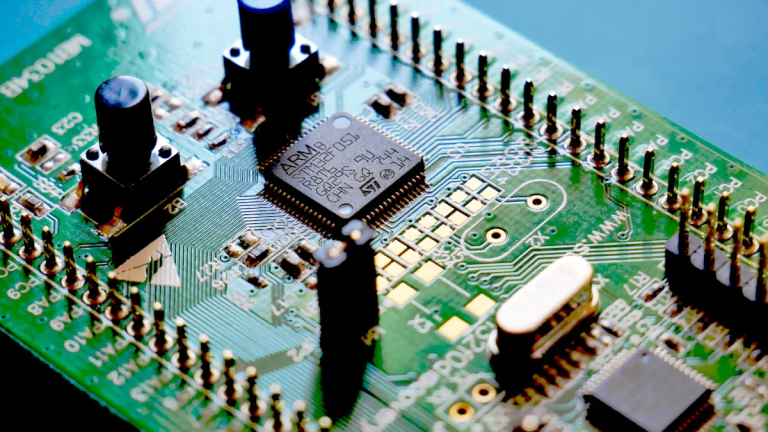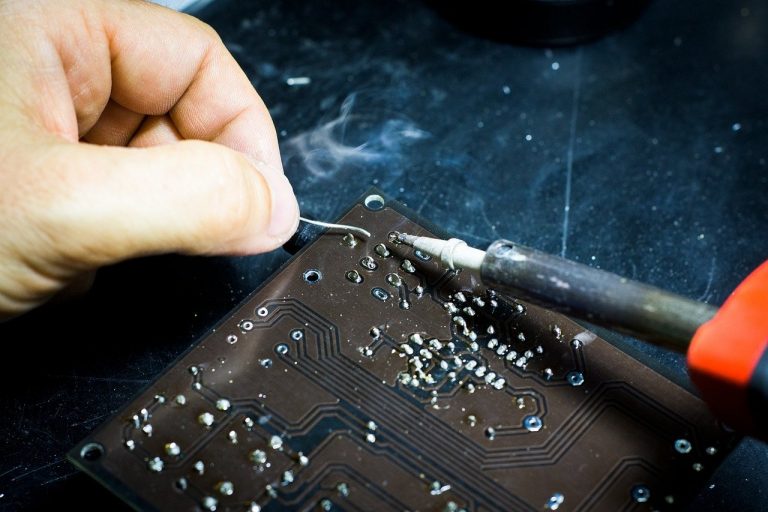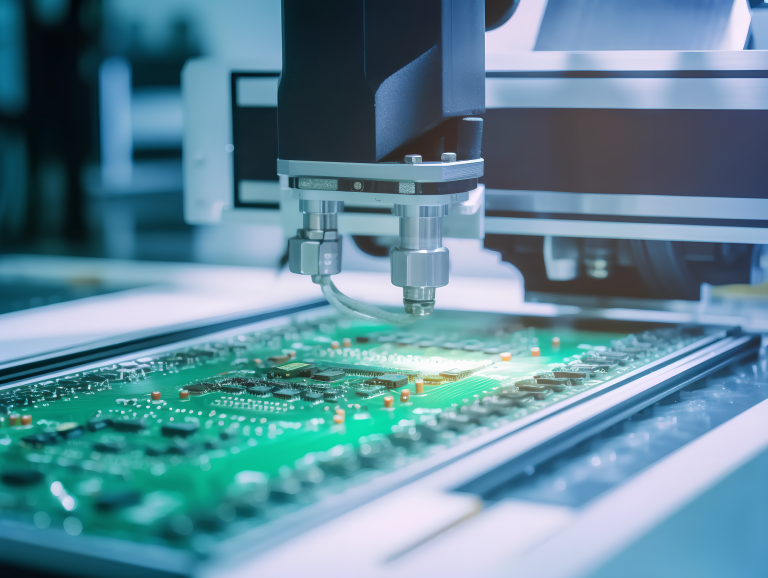Choosing the right PCB factory can make or break your project. You need a provider that delivers quality, reliability, and precision. Many challenges arise when selecting a manufacturer, such as unclear pricing, poor communication, or subpar capabilities. Modern trends like flexible PCBs and eco-friendly processes demand a factory that adapts to your needs. Focus on these factors to consider and ensure your project succeeds.
Key Takeaways
- Explain what your project needs, like PCB type and materials. This helps you pick a factory that matches your goals.
- Check if the factory has certifications and good tools. This makes sure your PCBs are high quality and dependable.
- Ask for clear prices and check how long it takes. This helps you choose the best factory for your money and time.
Define Your Project Needs with Precision
Before selecting a PCB manufacturing service, you must clearly define your project requirements. A precise understanding of your needs ensures you choose a factory that aligns with your goals and delivers high-quality results.
Identify the PCB type: single-layer, multi-layer, rigid, or flexible.
The type of PCB you need significantly impacts your choice of manufacturer. Single-layer PCBs are simpler and cost-effective, making them ideal for basic applications. Multi-layer PCBs, on the other hand, are essential for compact, high-density devices but require intricate designs and advanced manufacturing processes. Flexible PCBs offer versatility for unique designs, while rigid PCBs provide durability for robust applications. Large-scale manufacturers often excel in producing high volumes at competitive prices, while smaller manufacturers may offer personalized services for specialized projects. Consider your project’s complexity and volume to find the right fit.
Specify materials, dimensions, and design complexity.
Material selection plays a critical role in the performance and durability of your printed circuit boards. Use the table below to guide your choices:
| Consideration | Description |
|---|---|
| Compliance with regulations | Ensures that the PCB meets industry standards and legal requirements. |
| Application-specific requirements | Tailoring material choice to specific applications for optimal performance. |
| Cost considerations | Balancing performance needs with budget constraints. |
| Electrical performance | Evaluating how well the material conducts electricity. |
| Mechanical properties | Assessing the physical durability and structural integrity of the material. |
| Environmental resistance | Important for PCBs operating in harsh conditions. |
| Manufacturing process compatibility | Ensuring the material is suitable for efficient production methods. |
Additionally, define the dimensions and complexity of your PCB design. Complex designs may require advanced capabilities from your PCB manufacturing service, so ensure the factory can meet these demands.
Determine production volume and budget constraints.
Your production volume and budget directly influence your choice of a PCB assembly company. High-volume projects benefit from large-scale manufacturers that offer competitive pricing. For smaller runs, medium-sized manufacturers provide flexibility and personalized attention. Offshore manufacturers may reduce costs but could introduce longer lead times. Domestic options ensure faster delivery and better quality control but often come at a higher price. Balance your budget with your project’s needs to make the best decision.
Evaluate the Capabilities of a PCB Factory
When choosing a PCB manufacturing service, you must evaluate the factory’s capabilities to ensure it can meet your project’s requirements. A thorough assessment will help you avoid costly mistakes and delays.
Look for certifications like ISO and IPC standards.
Certifications are a clear indicator of a factory’s commitment to quality assurance. Look for key certifications that align with your project’s needs. Use the table below to guide your evaluation:
| Certification | Description | Industry/Application |
|---|---|---|
| ISO 9001 | Quality management systems, widely used for ensuring quality and excellence | General PCB manufacturing |
| ISO 13485 | Quality management for medical devices, ensuring safety and effectiveness | Medical device components |
| AS9100 | Quality management for aerospace, ensuring safety and effectiveness | Aerospace applications |
| UL Certifications | Safety certification ensuring compliance with relevant standards | General PCB safety |
| IPC Certifications | Standards for quality and reliability in PCBs, with three classes | Electronics industry |
| ITAR | Regulations for defense-related products | Military and defense applications |
| MIL Standards | High-quality standards for military applications | Military and defense applications |
These certifications and quality control standards ensure the factory adheres to industry best practices. For example, IPC certifications guarantee the reliability of printed circuit boards, while ISO 13485 is essential for medical applications.
Assess equipment, technology, and manufacturing processes.
Advanced equipment and technology directly impact the quality of the PCB manufacturing process. Modern innovations like High-Density Interconnect (HDI) technology allow manufacturers to produce compact and powerful PCBs for devices like smartphones. Laser Direct Imaging (LDI) enhances precision, while 3D printing accelerates prototyping. Factories using advanced FR-4 materials improve insulation and signal capacity, ensuring high-quality results.
Additionally, inquire about the factory’s manufacturing capabilities. Ask questions like:
- What are your manufacturing capabilities?
- Can you share examples of similar projects?
These questions help you gauge the factory’s technical expertise and ability to handle your project’s complexity.
Review quality control measures and testing protocols.
Quality control measures are critical to evaluate quality and ensure the reliability of your PCBs. Effective testing methods include visual inspection, automated optical inspection (AOI), and X-ray inspection. In-circuit testing (ICT) and functional testing verify that the PCB performs as expected. Environmental stress testing ensures durability under extreme conditions.
A reliable PCB assembly company will also focus on assembly checks, such as inspecting solder joints before and after soldering. These steps guarantee that every component meets your project’s standards. Always choose a manufacturer that prioritizes quality assurance throughout the production process.
Compare Costs and Lead Times for the Best PCB Manufacturer
Request detailed quotes and analyze pricing structures.
To find the best PCB manufacturer for your project, start by requesting detailed quotes. A transparent quote should break down costs, including material expenses, labor, and any additional fees. Compare pricing structures across multiple manufacturers to identify the most cost-effective option. Some factories may offer discounts for bulk orders, while others specialize in small-scale production. Always ensure the pricing aligns with your budget without compromising on quality.
Regional differences can also impact costs. For example, offshore manufacturers often provide lower production costs but may involve higher shipping fees. Domestic options might cost more upfront but could save you money on logistics and ensure faster turnaround times. Carefully weigh these factors to make an informed decision.
Evaluate lead times and the factory’s ability to meet deadlines.
On-time delivery is crucial for your project’s success. Evaluate the factory’s lead times and its ability to meet deadlines consistently. Ask about their production capacity and how they handle challenges like material shortages or complex PCB designs. Late design changes or stringent compliance requirements can also delay production, so choose a manufacturer with a proven track record of reliability.
Geographic location plays a significant role in lead times. Factories closer to your location can reduce transportation delays. However, customs clearance and logistics challenges may still arise when working with international manufacturers. Always confirm the factory’s ability to deliver within your required timeframe.
Consider additional costs, such as shipping and logistics.
Hidden costs can quickly inflate your budget. Beyond production expenses, account for shipping costs for both raw materials and finished PCBs. Additional handling or storage fees may also apply. Transportation challenges, especially for international shipments, can lead to unexpected delays and expenses. To avoid surprises, ask the manufacturer for a complete breakdown of logistics costs.
Regional sourcing options can help mitigate these risks. For instance, working with a PCB manufacturing service that sources materials locally can reduce transportation costs and improve turnaround times. Always factor in these additional costs when comparing manufacturers to ensure cost-effectiveness.
Assess Customer Support from a Reliable PCB Manufacturer
Customer support plays a vital role in ensuring your PCB project runs smoothly. A reliable PCB manufacturer should provide clear communication, dedicated assistance, and a willingness to address challenges effectively. Here’s how you can evaluate their customer support.
Test responsiveness and communication clarity.
Strong communication is the backbone of any successful partnership. When contacting a PCB manufacturing service, pay attention to how quickly they respond to your inquiries. Do they provide clear and concise answers? A manufacturer that values your time will prioritize prompt and transparent communication.
Customer satisfaction often reflects the quality of communication. According to industry data, companies with high Customer Satisfaction Scores (CSS) achieve up to 10% higher revenue growth than competitors. Prioritizing customer satisfaction also improves retention rates by 25%. Use these indicators to gauge how well the factory communicates and supports its clients.
Look for dedicated support teams or account managers.
A reliable PCB manufacturer often assigns dedicated support teams or account managers to handle your project. This ensures you have a single point of contact for updates, troubleshooting, and collaboration. Dedicated teams bring several benefits, including cost-effective solutions, advanced technical expertise, and streamlined production processes. They also provide 24/7 support and help with research and development, ensuring your project stays on track.
Working with a manufacturer that offers this level of support can save you time and reduce stress. It also demonstrates their commitment to delivering a seamless experience.
Evaluate the factory’s willingness to collaborate and resolve issues.
Challenges like solder quality issues, material defects, or test point accessibility can arise during PCB production. A reliable PCB manufacturer will proactively address these problems. Look for a factory that listens to your concerns and offers practical solutions. Their willingness to collaborate shows they value your project’s success.
You can also assess their problem-solving approach by reviewing customer feedback. Factories with high satisfaction ratings often excel at resolving issues and maintaining strong client relationships. This level of support ensures your PCB project meets its goals without unnecessary delays.
Review Reputation and Test the PCB Manufacturing Service
Choosing a reliable PCB manufacturing service requires you to evaluate its reputation and test its capabilities. This step ensures you partner with a manufacturer that delivers consistent quality and meets your project’s needs.
Research online reviews and client testimonials.
Reading customer reviews is one of the most effective ways to assess a manufacturer’s reputation. Look for feedback on their reliability, communication, and product quality. Positive reviews often highlight fewer defects and higher reliability, which are critical for successful PCB production. Negative reviews, on the other hand, can reveal recurring issues like missed deadlines or poor customer support.
You should also explore industry forums and social media platforms for unbiased opinions. These sources often provide insights into the manufacturer’s strengths and weaknesses. A strong reputation in the market reflects their commitment to delivering high-quality PCBs.
Request references or case studies of similar projects.
Requesting references or case studies allows you to evaluate the manufacturer’s capabilities in detail. A well-documented case study should include the following:
| Evaluation Criteria | Description |
|---|---|
| Product Quality | The core aspect that reflects a PCB manufacturer’s capabilities. |
| Certifications | Indicates adherence to industry standards like ISO9001:2008, UL, RoHS, ensuring quality. |
| Technology | Evaluates the technology used, including equipment and processing capabilities. |
| Equipment | Details on the advanced equipment used for PCB fabrication and assembly. |
| Component Sourcing | Assesses relationships with component distributors and sourcing capabilities. |
| Service | Evaluates customer service and support post-order completion. |
These details help you determine if the manufacturer can handle your project’s complexity and requirements.
Order prototypes to assess quality and compatibility.
Ordering prototypes is a crucial step in testing a PCB manufacturing service. Prototypes allow you to evaluate the quality of materials, thermal and electrical properties, and overall performance. When placing an order, ensure you communicate your specifications clearly to avoid misunderstandings.
Prototyping also helps you test the manufacturer’s inspection techniques. For example, many manufacturers use Automated Optical Inspection (AOI) and X-ray inspection to detect defects. These methods ensure the PCBs meet your quality standards before moving to mass production. By testing prototypes, you can confirm the manufacturer’s ability to deliver reliable and compatible products.
Choosing the right PCB manufacturing service ensures your project’s success. Focus on key factors like defining your needs, evaluating capabilities, and balancing cost with value. Prioritize quality to avoid defects and enhance performance. Start your search confidently and partner with a manufacturer that delivers reliable PCBs and exceptional customer support.
FAQ
What is the most important factor when choosing a PCB factory?
Quality is the most critical factor. A factory with certifications, advanced technology, and strict quality control ensures your PCBs meet performance and reliability standards.
How can I ensure my PCB manufacturer meets deadlines?
Ask about their production capacity and track record. Choose a factory with proven reliability and clear communication to avoid delays and ensure timely delivery.
Should I prioritize cost or quality when selecting a PCB manufacturer?
Always prioritize quality. Low-cost options often compromise reliability, leading to defects and higher long-term expenses. Invest in a manufacturer that delivers durable, high-performance PCBs.
💡 Tip: Order prototypes to test quality before committing to large-scale production. This step minimizes risks and ensures compatibility with your project requirements.


